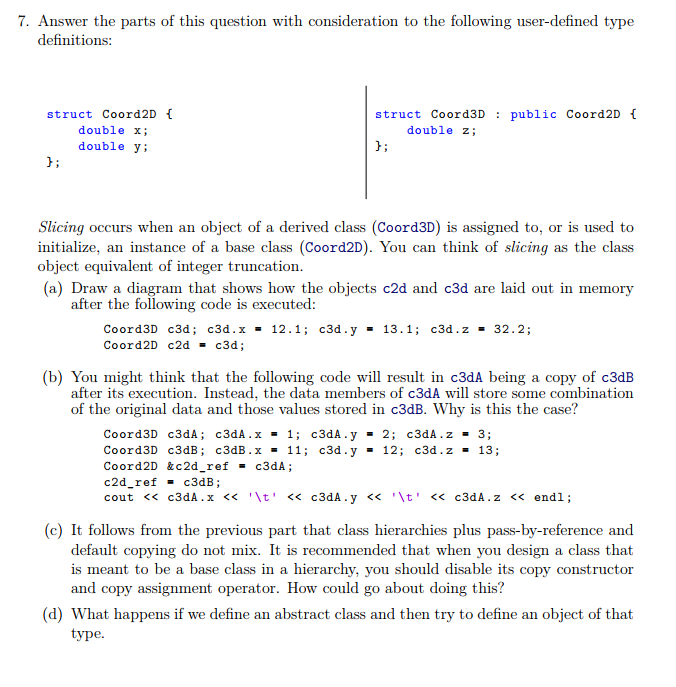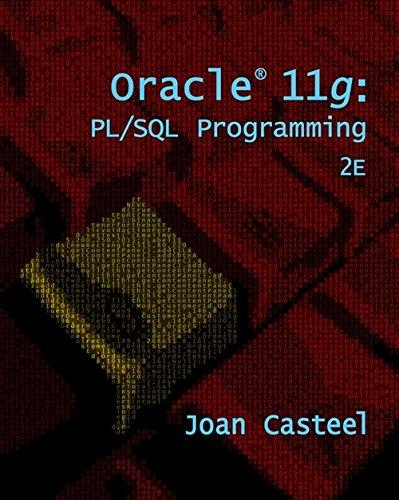Answered step by step
Verified Expert Solution
Question
1 Approved Answer
C++. Thanks 7. Answer the parts of this question with consideration to the following user-defined type definitions struct Coord2D struct Coord3D public Coord2D [ double
C++. Thanks

Step by Step Solution
There are 3 Steps involved in it
Step: 1

Get Instant Access to Expert-Tailored Solutions
See step-by-step solutions with expert insights and AI powered tools for academic success
Step: 2

Step: 3

Ace Your Homework with AI
Get the answers you need in no time with our AI-driven, step-by-step assistance
Get Started


